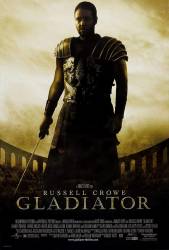
Question: I don't know whether this is a mistake or if there was a certain reason for it but, at the end of the movie when Maximus tells Quintus to free his men, Quintus turns to the line of guards standing behind him and says, "Free the prisoners, go!" Two of the guards standing next to each other immediately go to free the prisoners, and the rest of the guards don't budge. How did those two guards know that the orders were given directly to them?
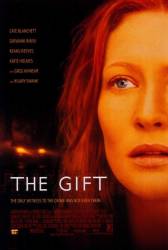
Question: When Annie and her boys are coming home from the neighbour's place, next door, there's a blue light coming from the main bedroom. Leaving her boys, Annie goes into the house and there is all this noise that sounds like a radio not completely tuned in, of an evangelist preaching really loudly. Now, where is all this noise coming from: Annie's mind, Donnie's car radio parked outside? Or is it just for our benefit?
Answer: The TV in Annie's room.
The TV wasn't on before, and Annie is suspicious of the noise and light, which she wouldn't be if it was just the TV.
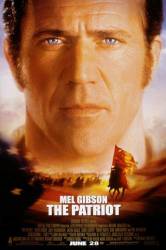
Question: At the end of the movie, Martin stabs Tavington in the stomach, and then in the throat. How does he know Tavington is really dead this time? Earlier in the film, Tavington pretended to be dead twice after Martin's sons shot him.
Answer: Guns were less powerful during Revolutionary times and the wounds were more survivable. Deep and ripping knife stabs to areas like the abdomen and the neck area are more likely to be fatal. Tavington may not die instantly, but he would probably bleed out and/or bleed internally fairly quickly.
Would being stabbed in the stomach, and in the throat have been enough to kill a person as tough as Tavington?
Absolutely. A deep stab to the stomach/intestinal area would be very deadly even today. Being stabbed directly in the throat would kill someone very fast due to a lack of air and inhaling blood into the lungs.
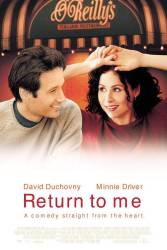
Question: What is the purpose or the story behind the little stuffed dog that appears in so many scenes? It's on the table when the guys are playing poker, it appears in the bowling scene too.
Answer: Presumably it's a favorite mascot of the group. There's likely no backstory per se, it's just something the filmmakers did to add to sense that these people have been together for a very long time.
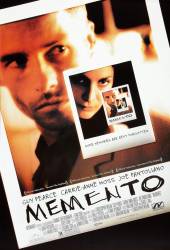
Question: I still don't understand why Leonard switches clothes with Jimmy and steals his car after he kills him. "I'd rather be mistaken for a dead guy than a killer." That makes absolutely no sense. Driving around in Jimmy's car and wearing his suit would make him the prime suspect in the investigation. He was much safer when he was just an anonymous guy driving around in a pickup truck.
Answer: It is never explicitly given. The most Leonard says on the subject is: "I'd rather be mistaken for a dead guy than a killer." Speculations include (you can make up your own motives as well) : (1) The clothes and car are so much nicer than his. If you are willing to kill someone: stealing is not really a "crime." Why not take the nicer objects? (2) It could be part of his "routine": Kill a man, take his clothes and car. The clothes he had on and the truck may be from the man he killed a year ago. (3) It could be that he wants to make the killer of his wife suffer even more, and takes his clothes as a way of humiliating him. Leonard takes the man's life-his clothes and car, which are wrapped up in his identity-just as the man took his. This idea seems to work with a theme in Memento about "Identity" (especially mistaken identity). Natalie thinks Leonard is Jimmy, then thinks he is Teddy, then learns he is Leonard. Teddy is "mistaken" for the second killer, Jimmy is "mistaken" for the 2nd killer. Sammy's story as a part of Leonard's story, etc. (4) It could "simply" be explained as a "plot device": Leonard has to do it, otherwise he won't find the note in "his pocket" and meet Natalie. (5) Leonard doesn't want to admit he's a murderer. He's lying to himself. If he's the victim, then he cannot be the murderer. (6) Leonard takes Jimmy's clothing as part of his routine of killing J.G.'s he becomes another person, he's the victim not the killer, thus "I'd rather be mistaken for a dead guy than a killer." and that's why he also takes his car, so he has to, once again, find his wife's killer and kill him.
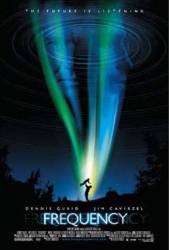
Question: Why did John's house suddenly alter so drastically when Jack's hand was blown off in the past? Did this one event somehow turn John into a better interior decorator?
Answer: Because the house is no longer John's. In this universe, his parents still live there.
Or he lives there and his wife redecorated.
I always took the scene at the end with Julia and Frank getting in a packed car with an older looking Elvis as them moving and leaving the house for John. And as I said above John's wife must have moved in and decorated.
Answer: The house changed because John's life changed, with both his parents alive to nurture and guide him, he became a different person. Different lifestyle and attitudes.
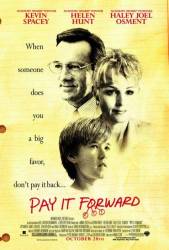
Question: I might be mistaken, but I think I saw the bullies at Arlene's house at the end. Were they there, and if so, why?
Chosen answer: The one who stabbed him was not. The others were there because they did not mean for Trevor to get stabbed and killed so now they feel guilty. They were showing Arlene they were sorry.
They were sorry for killing him.
Only one of the bullies killed him. The others were bullying, but didn't think the other would kill him. However, they still had remorse and were showing that remorse to the mother.
The one who stabbed him was probably arrested offscreen.
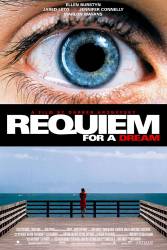
Question: What is the drug the characters use in the film? They inject it like heroin, but they snort it like cocaine. There's also the dialating eyelids, which occur when coke is snorted - so what is the drug in the film? And please don't base the answer on the IMDB.
Answer: Both heroin and cocaine are used in the film. Cocaine is used mostly by Marion, and also injected at least once but heroin can also be snorted. The route of administration stereotype does not hold to all drug users (except for alcohol, which can pretty much only be taken by mouth) The fact the prison guard says "He won't be putting any more DOPE in that arm" - dope is slang for heroin in New York, not coke - and the severe withdrawals as soon as the drug is unavailable suggests heroin is used by all three major characters. The pills used by Sara are preludin, dexedrine and diazepam (according to the novel which the film is based on) but I do not know what the "Blue" pill (the one she takes in the afternoon) is.
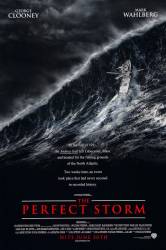
Question: What happen to Diane Lane's character in real life?
Answer: Diane Lane played Christina Cotter, Bobby Shatford's girlfriend. As of 2007, Christina was living with her new boyfriend in the White Mountain area.
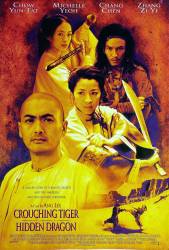
Question: What is the significance of the very last shot? We see see Jen (Zhang Ziyi) flying into the clouds and then a mountain/forest shot, in which nothing happens, for about a second and then the credits roll.
Answer: It is an open question. Interpretation of the last scene is really left to the audience. But to those of you who completely missed the whole point of the jump, it refers to the "Legend of the Mountain" as told to Jen by Lo "Dark Cloud". He told her that if a person makes a wish and jumps from the mountain, the wish will be granted and, occasionally, the jumper's life will be spared. "Crouching Tiger, Hidden Dragon" is actually a fourth book in the series of five books. In the book, Jen survives the fall, but never returns to Lo, fearing her parents shame and prosecution. Popular opinion seems to be that Jen was in fact in love with Li Mu Bai and the jump was an attempt of escaping the live lover towards the dead one.
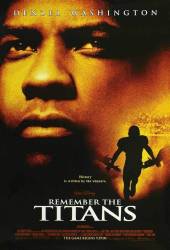
Question: Just out of curiosity, they didn't mention what happen to that Alan guy who gave his position to Pete. Did he go on to play college ball?
Answer: Alan Bosley was not a real person, just a character they made up for the movie, if you are looking for any info on the real players go to this site, http://www.71originaltitans.com.
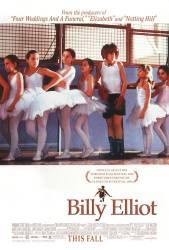
Question: Toward the very end of the movie, when Tony and Jackie are going to see Billy dancing, it seems almost as if Jackie is reluctant to go on, and is seen walking slowly and looking all around. What is the significance of this?
Answer: Some time has passed since Billy left home and became a professional dancer. Jackie is older now and not as physically active as he once was. He has also seldom left his small, provincial town, and being in a major city like London is a little daunting for him, so he is a little uncomfortable and out-of-place.
I'd agree with "overwhelmed" (or in awe), but not to the point of being "daunting" because he was eager and excited to see what Billy had become and was not trying to avoid going there. (It was more like he was trying to not let on how excited he actually was).
There's nothing to suggest that he was excited or eager, let alone that he was trying to hide it. It's more likely he was simply overwhelmed.
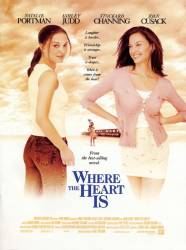
Question: When Willy Jack picks up the girl on the side of the road (after leaving Novalee at Wal-Mart), why doesn't he want her to put the last of her bags in the backseat?
Answer: I assume he wanted the backseat empty to do dirty business with her.
Answer: I think he motions for her to put them in the backseat simply because nothing else will fit in the trunk. I'm sure that it's safe to assume that he and Novalee had placed all their belongings in there already, so there wasn't much room left.
Answer: There were stolen items in the trunk. The officer rattled off a list of items "same exact items stolen" from a store. He probably didn't want her to find it.
Actually those "stolen items" were stolen by the girl he picked up, she wanted to go "anywhere but here" because she had robbed the store (hence why she had all that loose cash).
Answer: Honestly, I thought it was because he assumed it was dirty laundry since it was in a trash bag. No one wants smelly clothes in the backseat smelling up the car.
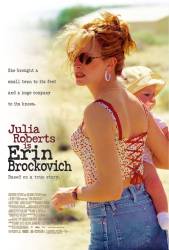
Question: I don't know all the ins and outs of the law, but when Erin is in a car accident, she is going straight through a green light. The other guy rams into her as he tries to cross the intersection (it's not like he just cut her off making a right turn) so obviously he had a red light and not even an arguable right of way. I know money can buy you justice, but how is this not an open and shut case?
Answer: They would have had to prove he ran the red light, which would require video or witnesses. It seems like Erin had no witnesses backing up her version of the story, so they wouldn't have had anyone to say he went through the red light either.
Chosen answer: I have to admit that is a bit frustrating to watch. I think that?s how the producers wanted us to feel. Making us think, "Man this chick never gets a break". It was just an unrealistic way to set up the character's life.
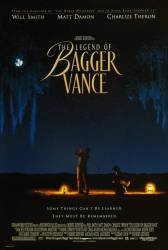
Question: Why is no credit given to Jack Lemmon?
Answer: There are many reasons that known actors appear in movies and are uncredited. Cameo appearances often go un-credited. Actors sometimes do a cameo if they are friends with the director or the other stars. It can add an unexpected surprise for the audience. There are also contract and payment issues if an actor receives billing in the credit. Jack Lemmon, who was the narrator for the story, may have preferred not being credited. He was certainly a big enough star that if he wanted to be listed in the credits, he would have received proper billing.
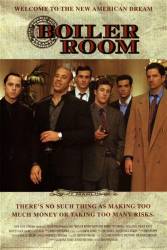
Question: Did the arriving FBI agents at the end of the movie let Seth leave because they knew he was going to testify against the firm?
Answer: Yes. Actually, with the help of Seth's dad, he cut a deal to testify.
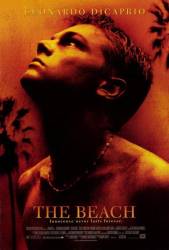
Question: What is the alternate ending and start to this film as shown on the DVD version?
Chosen answer: In the alternate beginning, Richard is sitting in front of the large Buddha statue when a taxi driver stops and prompts him to take a ride with him. He explains that they celebrate New Year's by spraying each other with water guns, and gives one to Richard. While riding in the taxi, Richard sprays others and gets sprayed, having a lot of fun. It ends when Richard enters the "mall" where he will eventually meet the guy who offers him to drink the snake blood in the regular movie beginning. In the alternate ending, Sal turns the gun on herself and commits suicide. It ends by having a large ship rescue all of them when they're stranded at sea, banned from the island. The final words by Richard are something to the effect of "I have a lot of scars," which from what I recall is the actual ending of the novel by Alex Garland.
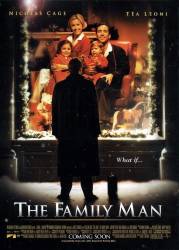
Question: Jack does not meet the Black mugger/angel again after returning to his former life. He wakes up in his apartment the same date he fell asleep, on Christmas. Were Jack's experiences all a dream?
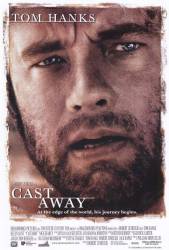
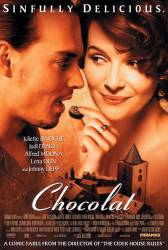
Chosen answer: Because they would be the ranking soldiers, and accustomed to being given orders. Being disciplined, they would obey Quintus without question. The legions would necessarily have soldiers assigned to following orders at different times, similar to how a captain would give an order to a full room, and the first mate would be the one to carry out the order.
rswarrior